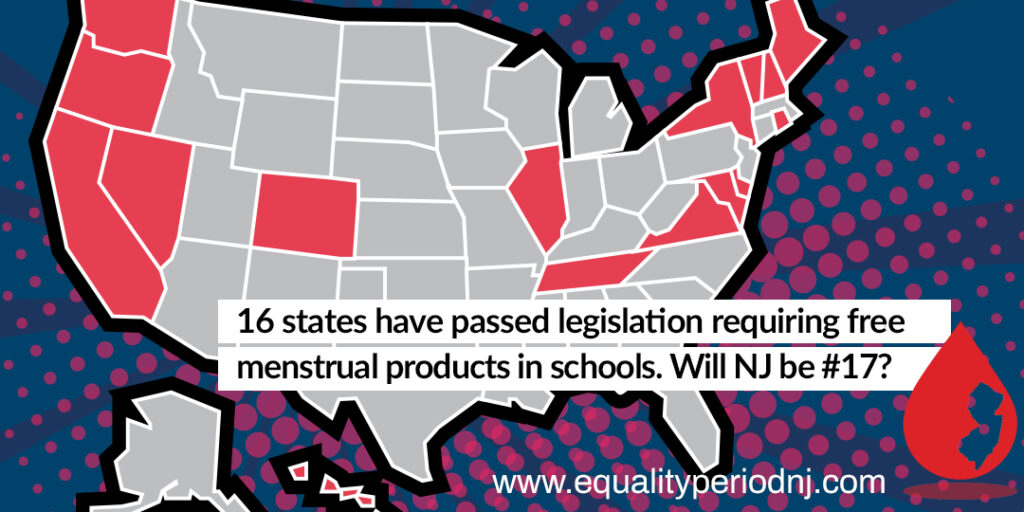Five Days, Every Twenty-Eight Days

Menstruation is a natural bodily function. Saturday (yesterday) marked Menstrual Hygiene Day, celebrated around the world to raise awareness of the stigma and shame experienced by half our population for something that is as normal as breathing. Menstrual equity is a public health concern. The need for public policy to address the safety, affordability, and availability of menstrual products for everyone who needs them is urgent.
Menstrual products are not luxuries, they are necessities. Policies that continue to disregard the needs of those who menstruate are clearly a form of gender-based exclusion and discrimination. Boys who use the restrooms in public schools have their needs met, as we have regulated the provision of toilet paper and paper towels. We need to do the same for menstrual products. NJ Bill S1221 which advanced through the Senate Education Committee on May 9, will provide free period products in public school bathrooms to meet the needs of our menstruating students. New Jersey’s best-in-the-nation education system funds all essential items needed for students to be successful in school—it is time menstrual products be included on the list.
Lack of access to these products, known as period poverty, is a serious issue for marginalized populations. Advocates and elected officials working in our communities know that there are many families that struggle to afford menstrual products, that they are often forced to choose between buying food or tampons. It can also be particularly harmful to non-binary people and transgender males. Nationwide, 1 in 4 students has struggled to afford menstrual products. While the ability to access menstrual products primarily affects menstruating students in low-income communities, a study found that students across all demographic groups reported a lack of access to menstrual products.
Research shows that students who lack access to menstrual products experience higher rates of absences and are less able to focus and engage in the classroom. Absenteeism can lead to significant performance gaps and is linked to social disengagement, feelings of alienation, and adverse outcomes even into adulthood. Expanding student access to menstrual products can result in increased attendance rates. A pilot program at a New York City high school saw a 2.4 percent increase in attendance in the participating school and subsequently the City of New York (in 2016) passed a law providing free menstrual products to students.
Sixteen states have already passed legislation requiring free menstrual products in schools. And though New Jersey was one of the first states to introduce this piece of legislation, it has been languishing in some hallway at the State Capitol. Our students deserve better. Equality, Period, NJ —a coalition to advance menstrual equity is working to ensure that 2022 is the year that we finally pass this bill. Providing menstrual products in schools will help ensure New Jersey provides equal access to education and enables students to reach their full potential, irrespective of gender.
Anjali Mehrotra is a fierce feminist and activist. She is President of the National Organization for Women of New Jersey and founder of Equality, Period. NJ - a coalition for menstrual equity. Anjali would like to emphasize that menstruation is a natural bodily function and that there should be no shame or stigma attached to it.





